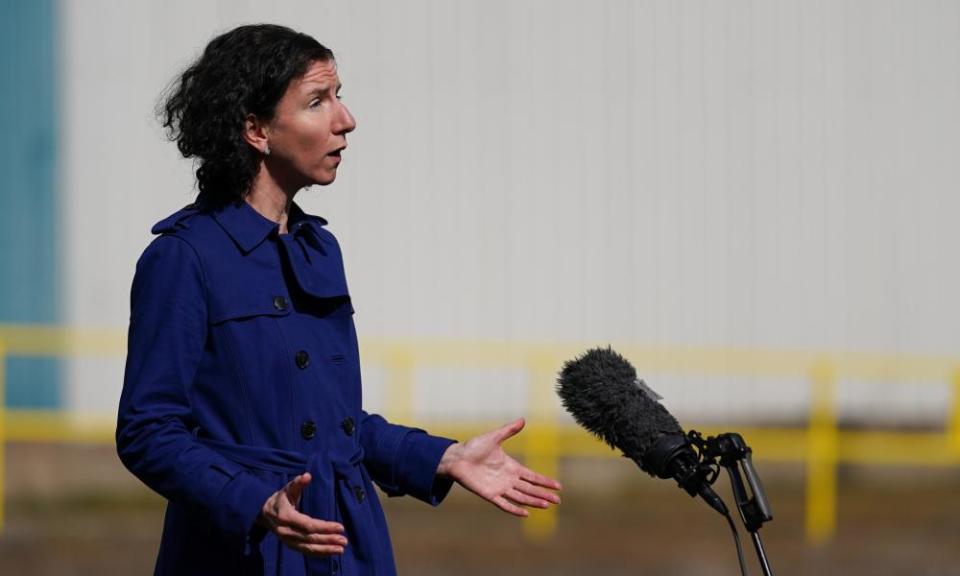Labour fills women and equalities shadow roles amid trans rights row

Labour has named its two new shadow women and equalities ministers, after facing difficulties trying to replace the previous team amid a row over the rights of people who identify as transgender.
The party chair, Anneliese Dodds, has become the new shadow secretary of state for women and equalities, with the Coventry North West MP Taiwo Owatemi taking on the shadow minister role.
Senior Labour insiders said they were confident both were firmly pro-trans rights and that their “politics are in the right place” on the subject that has divided the party recently.
At least one person turned down the offer of a move into the team, the Guardian was told, with MPs nervous it would be a “poisoned chalice” that was likely to attract significant levels of vitriol and criticism.
Dodds had been considered to head the team for several days, but there was concern about her doing it on top of her other roles as party chair and head of Labour’s policy review.
Marsha de Cordova was solely the shadow secretary of state for women and equalities until last week, and Labour had criticised Liz Truss for splitting her time as senior women and equalities minister with being international trade secretary, meaning there were worries that giving Dodds the job would send the wrong signals.
However some Labour figures thought Dodds, who was demoted as shadow chancellor in May, would be keen on taking on a proper public-facing role again. “It gives her a more clearly defined job than the one she has at the moment where she doesn’t have any power, responsibility and isn’t shadowing anyone,” one said.
The interest in Labour’s stance on trans rights has grown after a backbencher, Rosie Duffield, called for the party leader, Keir Starmer, to meet her and other female MPs to discuss the party’s policy on self-identification. Duffield, who has said she will not attend this week’s autumn conference partly due to fears for her safety, has become a focal point for criticism from some LGBT groups in Labour.
She previously liked a tweet that said “individuals with a cervix” should instead be referred to as “women”. In July, Labour LGBT groups called for the party to investigate her after she liked a tweet from a gay US rapper, which complained about trans groups appropriating the word “queer” and described them as “mostly heterosexuals cosplaying [costume playing] as the opposite sex and as gay”.
Labour are trying not to fuel the so-called “culture war” stoked by some Conservatives, though allies of Starmer have stressed he is fully supportive of the current policy that all people should have the right to self-identify and disputed any suggestion he had been silent on the issue.
An MP said: “No one wants to get drawn into fighting with colleagues in public” over Duffield’s comments, but added: “That is not to say we haven’t tried to have conversations in private.”
Duffield revealed over the weekend she would skip the annual gathering of Labour members in Brighton, telling the Sunday Times: “There are groups that will be at a party conference that my presence would irritate. I did not want to subject myself and other people to that kind of abuse.” She added she “mainly took the decision not because I really thought I was going to be attacked, but because I did not want to be the centre of attention”.

 Yahoo Finance
Yahoo Finance